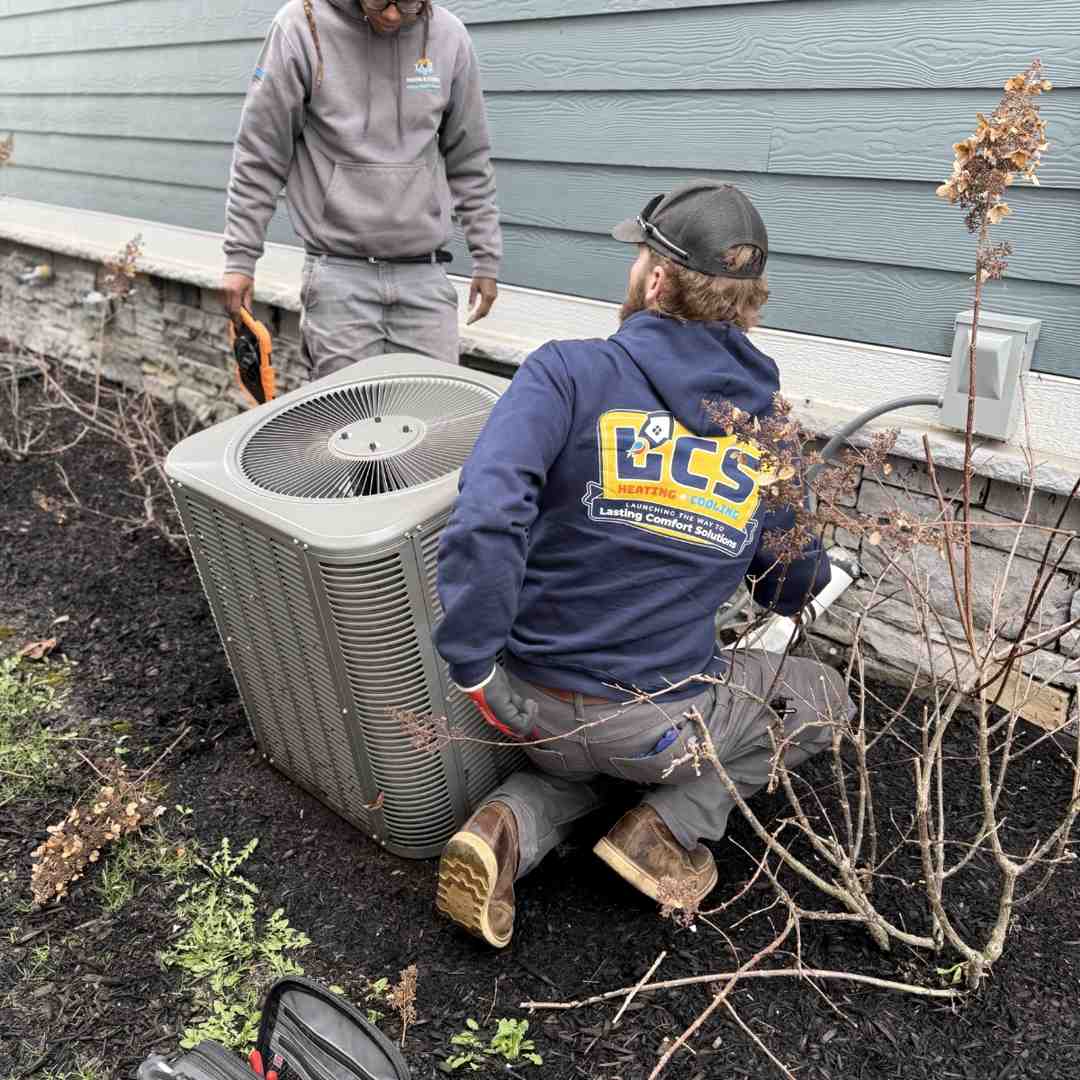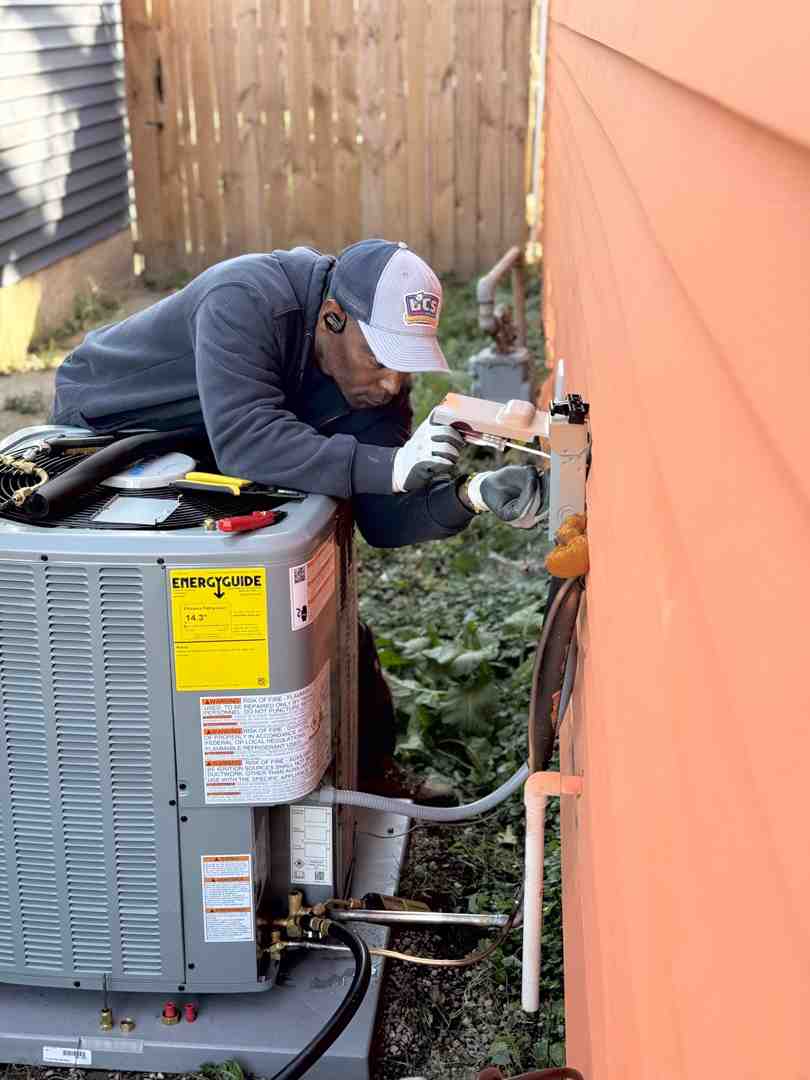What To Do When Your Lawrence AC Unit Won't Turn On
When summer temperatures rise in Lawrence and your AC unit suddenly won’t turn on, it can be more than an inconvenience. A home that’s too hot isn’t just uncomfortable—it can affect sleep, indoor air quality, and even appliances. You might flip the thermostat up and down, hoping it’s just a quick fix, but nothing changes. This situation is more common than most homeowners think.
Many residents assume their system has completely failed, but there are several smaller issues that can cause an AC unit to stop working. Before assuming the worst, it helps to understand what might be going on and what steps you can take. Whether your unit makes no sound at all or starts and stops without warning, it helps to know the common problems behind it. That way, you’ll be ready to explain the issue clearly when a technician stops by, or even fix the simpler causes yourself.
Common Reasons Why Your Lawrence AC Unit Won't Turn On
A non-working AC unit doesn’t always mean a full breakdown. In most cases, the source of the problem can be traced to a handful of usual suspects. While some may require professional inspection, many issues are tied to smaller components, controls, or even your home’s electrical setup.
Here are some of the most common reasons for an AC unit not turning on:
- Thermostat settings: Sometimes, the issue starts with a setting change that went unnoticed. If the thermostat is set to “heat” or “off” instead of “cool,” the AC won’t click on. If the device runs on batteries, a low battery can also cause it to stop working altogether.
- Tripped circuit breaker: During heavy use, especially in peak summer, your system can pull more power than usual. If anything overloads the electrical circuit, it might trip the breaker, cutting power to the AC altogether. This can happen without warning and is often missed by homeowners.
- Blown fuse or a disconnected power switch: Your indoor and outdoor units may each have designated power switches. If one has been accidentally turned off or a fuse has blown, the unit won’t turn on. This is more common if recent maintenance or yard work was done.
- Dirty air filter causing safety shut-off: When filters are clogged, airflow gets restricted. In some units, this triggers a safety setting that turns the system off to prevent damage. If your filter hasn’t been replaced recently, this could be a simple but overlooked cause.
- Drain pan overflow shut-off: Many AC units include float switches that detect water in the drain pan. If the pan overflows or the switch gets stuck, it may shut off the unit to avoid water damage inside the home.
A quick example: Let’s say your AC was running smoothly one afternoon, but after doing some vacuuming and running the oven, the unit stopped turning on. This could easily be a case of a power overload that tripped the breaker. A flip of the breaker switch might restore everything.
Simple Troubleshooting Steps to Try Before Calling
Before reaching out for help, there are a few safe, quick checks homeowners in Lawrence can try to see if the problem resolves easily. These steps don’t require tools or technical know-how and may save time during a service call.
1. Check thermostat settings – Make sure it’s set to “cool” with the temperature well below the current room temp. Try lowering it a few degrees and listen for any response from the unit.
2. Inspect circuit breakers – Go to your home’s electrical control panel and look for any breakers in the “off” or middle position. If the AC breaker is tripped, switch it off completely, then back on.
3. Replace thermostat batteries – If your thermostat screen is blank or responding slowly, new batteries might restore function.
4. Inspect the outdoor disconnect switch – Sometimes located in a small box near the external unit, this switch may have been accidentally turned off. Only flip it if you’re able to identify it safely.
5. Change the air filter – If it’s been over a month or two, replacing the filter can restore airflow and prevent auto shut-off.
6. Check for moisture in the drain pan – Excess water or a misaligned float switch could be disabling the unit. If you’re comfortable doing so, you can carefully remove standing water.
Keep in mind, these steps are helpful for simple hiccups. If none of them bring your system back to life, the problem is likely internal and will need a closer inspection from our professionals.
Importance of Professional Assessment
When simple troubleshooting steps don’t solve the issue, it’s time to get a professional inspection. Many components in an AC system are complex and require testing equipment and technical knowledge. Even if the issue appears minor, working on internal electrical parts without the right training can create safety risks or lead to bigger repairs later.
Our professionals are trained to find problems that aren't obvious at first glance. It could be a capacitor failing to send a surge of electricity to start the motor or a contactor switch that’s stuck open. These parts sit deep inside the unit, and catching the issue early can prevent further damage. If your system starts briefly but shuts down within seconds, that often points to a more serious problem that only a trained technician should handle.
In some cases, the issue may turn out to be more than just one failed part. For example, performance problems can come from low refrigerant levels, which are often caused by a hidden leak. That’s not something that can be fixed on the surface. Pinpointing the exact failure and determining if it’s part of a larger issue helps you make more informed choices about what to do next—repair or replace.
When AC Installation in Lawrence Makes More Sense
There comes a point when putting more money into a failing system is no longer practical. Knowing when to stop repairing and start planning for a replacement can save you from ongoing stress, rising energy bills, and repeat breakdowns. If your system struggles to cool your home even after a repair, or it shuts down again shortly after being fixed, it’s worth thinking about the long-term solution.
Here are signs you might need to start thinking about a new AC installation in Lawrence:
- The current unit is over 10–15 years old
- Your energy bills keep climbing without changes in usage
- Repairs are becoming frequent and more expensive
- Rooms in the home cool unevenly or stay warm
- The unit uses outdated refrigerant that’s harder to source
As an example, if your system lost power during a heatwave and a simple relay swap brought it back, that may seem good enough for now. But if the system continues to trip, leak refrigerant, or blow warm air, repeated short-term repairs aren’t solving the bigger issue of a weakened system. A new installation can be a cleaner, more dependable solution.
Choosing to upgrade isn’t always about failure either. Some homeowners in Lawrence decide on a replacement to improve efficiency and home comfort. Newer systems offer better energy use and quieter operation—features that matter, especially in older homes with insulation challenges.
Restoring Comfort in Your Lawrence Home
Living in a hot, humid home with no working AC is never easy, especially during peak summer months in Lawrence. Addressing the issue quickly and correctly requires a clear look at what could be wrong and knowing when deeper help is needed. Troubleshooting a few common problems can rule out easy fixes, but persistent system failures call for professional diagnosis to get the cooling back on track safely.
At a certain point, it no longer makes sense to keep repairing a system that’s costing more than it returns in comfort. If your AC keeps failing or can’t keep your space cool no matter what you try, looking at new options becomes the smarter move. Whether it’s replacing a single part or planning for a full AC installation in Lawrence, the goal is the same—getting your home back to a comfortable, livable temperature as soon as possible.
If your home continues to struggle with cooling issues despite basic troubleshooting, exploring options for AC installation in Lawrence might be the solution you need. The experts at LCS Heating & Cooling are ready to help you assess whether a replacement offers a more reliable, long-term fix that outperforms recurring repairs. For a quick estimate or to book a service visit, please contact us today.

